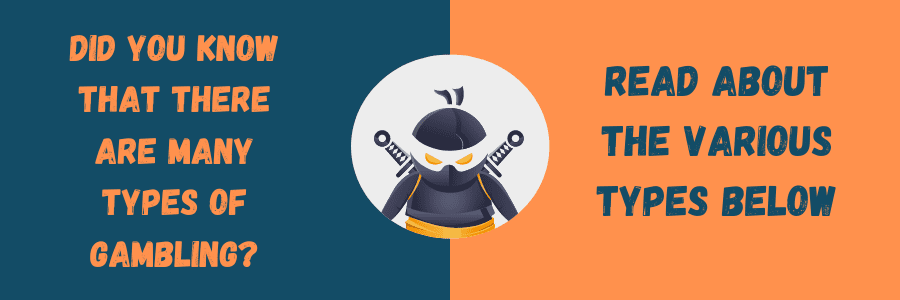Philosophy of Gambling: Navigating the Depths of Chance and Choice
The gambling industry captures the thrill of uncertainty, the allure of potential riches, and the age-old dance between fate and strategy. The philosophy of gambling embarks on a profound exploration of human psychology, risk assessment, and the intricate interplay between chance and decision-making.
In the context of gambling, having a well-defined philosophy can enhance your ability to make informed betting decisions in sports betting and casino games.
This approach to gambling philosophy explores various topics, including the fundamental principles that shape gambling regulations, the influence of luck and probability in games of chance, the intriguing concept of the gambler’s fallacy, and how philosophical insights can elevate your gameplay at top-tier casino destinations.
Why Do People Gamble?
At its core, gambling is a complex tapestry woven from a myriad of motives, encompassing psychological, social, and economic dimensions. One of the primary catalysts driving individuals to engage in gambling is the exhilarating thrill it offers.
The unpredictability of outcomes, whether manifested in the roll of dice, the spin of the roulette wheel, or the shuffling of cards, triggers an adrenaline rush that can become irresistibly captivating. This rollercoaster of emotions creates a unique and memorable experience, transcending the mere result.
Another (unfortunate) compelling force propelling people towards gambling is the pursuit of wealth and success. The tantalizing prospect of turning a modest wager into a substantial fortune acts as a magnetic pull.
The dreams of achieving financial independence, basking in opulence, and experiencing the high life can serve as potent motivators, inviting individuals to test their luck against the odds.
Furthermore, gambling serves as a form of entertainment and social interaction. Whether brick-and-mortar or virtual, casinos offer a vibrant arena where individuals converge, creating a tapestry of shared experiences.
The bonds formed around gaming tables or a slot machine cultivate a sense of camaraderie, forging connections and communal ties.
If you’ve been gambling to escape from worries or stress and feel that it has gotten out of control – please start taking action on it. You can start by reading our articles on how to stop gambling to begin with!

Different Types of Gambling
The gambling realm is diverse, offering an array of activities tailored to diverse preferences and risk appetites. Some of the most prominent forms of gambling include:
Casino Games: Within the opulent confines of casinos, an eclectic mix of games awaits, ranging from the strategic manoeuvres of poker to the anticipation-laden roulette wheel. These games intertwine skill, strategy, and chance, crafting an enthralling medley that keeps players engrossed. Casino games include classic games such as card games, blackjack, roulette, baccarat and of course online slots.
Sports Betting: Engaging sports enthusiasts worldwide, sports betting invites individuals to analyze statistics, forecast outcomes, and place informed bets on athletic contests. This form of gambling blends passion with strategy, offering a dynamic and interactive experience. To succeed with sports betting the decision-making should rely on knowledge. But there will always be an element of chance, meaning such events won’t necessarily end with the expected value.
Lotteries: The allure of lotteries lies in their simplicity and the promise of life-altering fortunes. A single ticket holds the potential to unlock unimaginable riches, creating an aura of excitement and anticipation.
Online Gambling: The digital age has ushered in a new era of gambling, where online casinos, poker rooms, and virtual sportsbooks with fast payouts provide a convenient platform for enthusiasts to indulge their passions. This gives players access to casino games without the need to visit land-based casinos in Las Vegas or other places. Instead, they can join a blackjack table or other games from the comfort of their homes.
Social Gambling: From casual poker nights among friends to friendly wagers, social gambling accentuates the communal aspect of the experience. The focus here is on shared enjoyment rather than solely monetary outcomes.
How to Improve Your Gambling Skills with Philo sophy
sophy
Although mathematics can seem like the right way to go in the gambling industry, cognitive psychology and philosophy can be as helpful. It might sound surprising, but philosophy can offer valuable insights that enhance your gambling experience and increase your chances of success.
Stoicism: Mastering Your Mindset
Stoicism is like a mental toolbox for gamblers. It teaches you to focus on what you can control and accept what you can’t. When you apply Stoic principles to gambling, you learn to make rational decisions based on the information at hand. Instead of getting frustrated over losses or overly excited by wins, you maintain a balanced mindset. This steady approach prevents impulsive choices and helps you play strategically.
Taoism: Going with the Flow
Taoism emphasizes harmony and balance with the universe. In gambling, it’s about adapting to the ebb and flow of luck. Just as a river flows naturally, you learn to embrace the highs and lows of gambling without becoming overly attached to outcomes. This attitude reduces stress and lets you make clear-headed decisions, whether at the poker table or spinning the roulette wheel.
Hedonism: Finding Joy in Moderation
Hedonism might sound indulgent, but it actually encourages moderation and pleasure through balance. Applying this philosophy to gambling means enjoying the thrill without getting carried away. Instead of chasing big wins or losses, you focus on the pleasure of the game itself. This mindset prevents reckless bets and helps you savor the experience while staying in control.
Rational Thinking: Avoiding Fallacies
Philosophy teaches you to think critically and avoid common pitfalls, like the infamous Gambler’s Fallacy. This fallacy tricks you into believing that past outcomes influence future events, when in reality, each game is independent. By understanding this, you make more informed decisions based on probabilities and data, rather than being swayed by false beliefs.
Self-Awareness: Knowing Your Limits
Philosophy encourages self-reflection and knowing yourself. In gambling, this translates to setting clear limits on time and money. By defining a budget and sticking to it, you ensure that gambling remains a form of entertainment rather than a financial burden. This self-awareness also helps you recognize signs of problem gambling and seek help if needed.
In the world of gambling, philosophy isn’t just a collection of ancient ideas – it’s a practical toolkit that empowers you to play smarter, make calculated choices, and find enjoyment while staying in control. So, next time you’re at the casino or betting online, remember that philosophy is your secret weapon to becoming a more skillful and mindful gambler.
Different Approaches to Gambling
Countries around the world have adopted various approaches based on their beliefs and priorities. In the book Gambling and the Public Interest by Professor Peter Collins he mentions five main approaches countries have to gambling.
- Religious Approach: In certain places, gambling is seen as morally wrong and is even considered a sin. For instance, some governments in the Middle East and parts of Asia, where Islam is a dominant religion, outlaw gambling altogether due to religious prohibitions.
- Paternalistic Approach: Some countries take on a protective role, aiming to shield individuals from potential harm. These nations might allow basic forms of gambling like lotteries but restrict or ban casino games and sports betting. Vietnam and India are examples of countries following this approach, often limiting casinos to foreign visitors.
- Pragmatic Approach: Certain nations strike a balance between allowing gambling and safeguarding their citizens. They understand the risks of problem gambling but also respect personal choices. These countries regulate gambling closely, ensuring it doesn’t get out of control while still allowing some forms of it.
- Liberal Approach: In countries like the UK, gambling is treated as a business activity. Similar to how pubs and bars are regulated, gambling is considered a commercial venture. While rules protect minors and support problem gamblers, the overall approach is one of tolerance, allowing widespread and controlled gambling.
- Commercial Approach: Some places see gambling as a means to boost their economy through taxes. Cities like Las Vegas and Macau are famous examples, where gambling revenue contributes significantly to the local economy. With the rise of online gambling, other regions like Malta, Gibraltar, and the Isle of Man have become hubs, offering favorable tax environments to attract gambling operators. This approach is also seen in locations like Curaçao and Kahnawake.

The Gambler’s Fallacy – Mistaken Beliefs
When crafting regulations for the gambling industry, regulators delve into the realm of philosophy, weighing ethical principles, practical implications, and economic dynamics.
Similarly, gamblers develop a unique personal philosophy influenced by their perspectives on luck, probability, morality, practicality, and reason. Yet, amidst the intricate tapestry of these beliefs, it’s crucial to recognize the lurking pitfalls of cognitive biases that can cloud judgment amid excitement and uncertainty.
Problem gamblers often tend to believe in fallacies meaning that they have false beliefs about the probability of different events occurring. For example:
Classic Gambler’s Fallacy
The Gambler’s Fallacy is a mistaken belief that the outcomes of random events are somehow influenced by previous outcomes, even when the events are statistically independent. In other words, it’s the incorrect idea that if an event occurs more frequently than usual recently, it’s less likely to happen in the future, or vice versa.
For example, if you flip a coin and it lands on heads five times in a row, the Gambler’s Fallacy would suggest that it’s now more likely to land on tails on the next flip, which is not true. Each coin flip is an independent event, and the outcome is purely a matter of chance.
In conclusion, the Classic Gambler’s Fallacy is a specific type of Gambler’s Fallacy that occurs when a person believes that after a series of outcomes of one type (e.g., all heads on coin flips), the opposite outcome (e.g., tails) is more likely to occur next.
This is based on the mistaken idea that the universe somehow “balances out” the outcomes over time, when in reality, each event is independent and has no bearing on future events.
One of the most famous examples of the Gambler’s fallacy occurred in the Monte Carlo Casino in August 1913, when the ball landed on black 26 times in a row. For this reason the Gambler’s fallacy is also known as the Monte Carlo Fallacy.
Inverse Gambler’s Fallacy
The Inverse Gambler’s Fallacy is the opposite of the classic version of Gambler’s fallacy. It occurs when a person believes that after a series of outcomes of one type (e.g., all heads on coin flips), the same outcome (e.g., heads) is more likely to occur next.
This is another mistaken belief that past events somehow influence future events when each event is still independent and random.
Retrospective Gambler’s Fallacy
The Retrospective Gambler’s Fallacy is a fallacious belief that a rare event is more likely to have happened in the past if it hasn’t occurred recently.
For example, in roulette, if a wheel lands on black 10 times in a row, the Retrospective Gambler’s Fallacy suggests that the exact number is more likely to occur again on the next spin because it hasn’t shown up in a while. However, this belief is incorrect since each spin of the roulette wheel is an independent event, and the past outcomes do not influence future outcomes.

Strategy – A False Sense of Security?
Strategies, the carefully planned approaches to gambling, can indeed offer players a sense of control and a glimmer of hope in the face of uncertainty. These techniques often involve analyzing past outcomes, recognizing patterns, and applying mathematical calculations to predict future results. They provide a structured framework promising an edge over sheer luck.
Take blackjack, for instance. Skilled players may employ card-counting techniques to track which cards have been dealt, attempting to anticipate the likelihood of favourable hands. Similarly, keen observation and pattern recognition can help players make informed decisions about their bets and moves in poker.
However, the reality is that gambling is unpredictable by its very nature. While strategies can offer a sense of empowerment, they are not foolproof. The delicate interplay of chance and randomness often renders even the most well-crafted strategies ineffective in the long run.
Factors such as the inherent randomness of outcomes, the house edge designed to favour casinos, and the constant variations in luck make it challenging for strategies to yield success consistently. Casinos, whether traditional or online, are well aware of these tactics and have measures in place to counteract them. Even the best payout casinos do have an edge!
Furthermore, the emotional and psychological aspects of gambling can also thwart the effectiveness of strategies. The adrenaline rush, the desire to win big, and the fear of losing can cloud judgment and lead players to deviate from their planned strategies in the heat of the moment.
The Golden Rule of Gambling: Playing It Safe and Smart
The golden rule of gambling is essentially this: “Only gamble what you can afford to lose.” This principle emphasizes the importance of responsible gambling and encourages individuals to set limits on their gambling activities to prevent financial hardship or negative consequences.
Remember, gambling should be viewed as a form of entertainment, and it’s crucial to prioritize financial well-being and exercise self-control.
Amid the thrill and allure, the golden rule of gambling emerges as a guiding principle for responsible engagement.
This rule is like a friendly guide, helping new and experienced players have a great time while staying in control. It’s all about being smart and responsible as you enjoy the excitement of gambling. As you can imagine, running this website, I gamble a lot, but I still keep this rule close to my heart.
Have a Budget
One way to stay in control is by deciding on a budget. This is like deciding how much money you’re okay with using for gambling.
It’s a bit like deciding how much allowance you want to spend on a fun day out. Having a budget helps you avoid spending too much and keeps things enjoyable without worrying about money.
It is easy to continue gambling without a budget even when you shouldn’t. The probability of you winning won’t rise because you keep playing, and such behaviour may instead lead to problem gambling and gambling addiction.
Admit Defeat
Sometimes, you might not win when you gamble. Just like when you play games with your friends, there are times you might not come out on top. That’s totally okay! Responsible gambling means understanding that losing is part of the game.
Instead of trying to win back what you lost really quickly, it’s better to take a break and think about your next move. It is especially important to understand that more game rounds won’t increase your winning chances. Don’t let fallacies influence you when gambling – keep your mind clear!
Balance is Key
Being a responsible gambler isn’t just about money – it’s also about finding a healthy balance. Just like you manage your time between different activities, like school, family, and fun, it’s important to find the right balance with gambling too.
Think of it as keeping everything in harmony, so you can enjoy the excitement of gambling without it taking over your life.
Responsible gambling means setting limits that help you stay in control and keep the fun going. This includes both how much money you’re comfortable using for gambling and how much time you spend playing.
As you learn to be responsible while gambling, remember to also be aware of how you feel. If you start feeling like you’re playing too much or it’s making you upset, it’s important to ask for help. You can talk to your family, friends, or other people who can support you.
- Responsible gambling is all about making smart choices and staying in charge of your actions, just like you do in any other game you play.
Conclusion
In conclusion, the philosophy of gambling explores the fascinating interplay between chance and choice, driving us into a world of excitement and uncertainty. It uncovers motivations from the thrill of unpredictability to the allure of wealth accumulation. Different forms of gambling offer unique experiences, from strategic casino games to analytical sports betting.
Philosophical principles like Stoicism, Taoism, and rational thinking can enhance gambling by promoting balance, adaptability, and informed decision-making. Responsible practices emphasize self-awareness, setting limits, and seeking help when necessary.
While strategies provide a sense of control, the golden rule of gambling remains essential: “Only gamble what you can afford to lose.” This rule safeguards financial well-being and ensures mindful engagement.
Ultimately, gambling philosophy invites us to explore chance, choice, and human nature thoughtfully. Philosophy serves as both a guide to enriching experiences and a compass for responsible participation in this captivating realm.
 sophy
sophy


